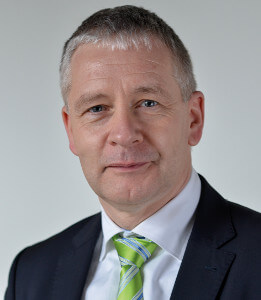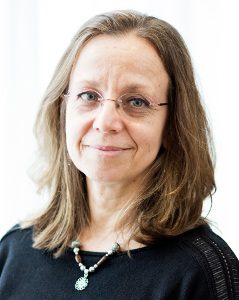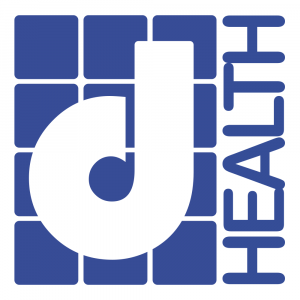dHealth 2019 - Keynotes
 Thomas Fuchs
Thomas Fuchs
Memorial Sloan Kettering Cancer Center
New York
Prof. Dr. Thomas J. Fuchs is leading the Medical Machine Learning and Computational Pathology group at the Memorial Sloan Kettering Cancer Center. He is Associate Professor for Machine Learning at Weill-Cornell University, and director of the Warren Alpert Center for Digital and Computational Pathology in New York City.
Dr. Fuchs completing his MS (Dipl.Ing.) in Technical Mathematics from the Technical University Graz, Austria, and earned a Dr.Sc. in Machine Learning from ETH Zurich including a PhD program on System Biology and Medicine from ETH’s CCSPMD in Switzerland. After his postdoctoral studies at the California Institute of Technology’s Department of Electrical Engineering and Computation and Neural Systems, he joined NASA as a research technologist in the Engineering and Science Division of NASA’s Jet Propulsion Laboratory in Pasadena, California.
Title: "Clinical-grade Artificial Intelligence: Hype or Hope for Cancer Care"
Artificial Intelligence is revolutionizing healthcare and will fundamentally transform how cancer patients are diagnosed and treated. One of the disciplines most impacted is pathology which is in the midst of evolving from a qualitative to a quantitative science. This transformation is driven by machine learning in general and computer vision and deep learning in particular.
In this talk we will analyze what it takes to build a clinical-grade artificial intelligence, how deep learning at petabyte-scale enables new ways of cancer diagnosis and how these systems impact clinical practice and the work of medical doctors. We will try to separate the vast potential of machine learning in healthcare from the current hype and address crucial issues of ethics and patient privacy. Finally, we will take a look into the future to medicine and how artificial intelligence can impact and hopefully improve cancer care for patients.
 Gernot Marx
Gernot Marx
Department of Intensive Care Medicine
University Hospital Aachen
RWTH Aachen - University of Excellence
Aachen, Germany
Dr. Gernot Marx, MD, FRCA is full Professor of Anesthesiology and Critical Care Medicine and Chair at the University RWTH Aachen, Germany. He is Head of the Department of Intensive Care Medicine and Intermediate Care at the University Hospital RWTH Aachen. He is chairman of the board of the German Society of Telemedicine. He is full board member of the German Society of Anaesthesia and Intensive Care and full board member of the interdisciplinary German Society of Intensive Care and Emergency Medicine. Gernot Marx leads the largest German telemedicine project for intensive care and infectiology patients “TELnet@NRW” funded by the “Innovationsfond”. In 2018 he was elected as chair of Innovation centre for digital medicine in Aachen. He graduated and took his residency at the Medizinische Hochschule Hannover in Germany. He was Senior Lecturer in Anaesthesia and Intensive Care Medicine at the University of Liverpool, UK and full Professor for Anaesthesiology, Intensive Care and Emergency Medicine at the Friedrich-Schiller-Universität Jena, Germany. He received the Fellowship by election of the Royal College of Anaesthetists. His research interest is focused on sepsis, fluid therapy and telemedicine. Prof. Marx has published more than 150 peer-reviewed papers. He is Editor of various books, e.g. Checklist Intensive Care Medicine and The Intensive Care Medicine. He is Editor in Chief of intensivup2date, Editor of AINS (Anaesthesiologie Intensivmedizin Notfallmedizin Schmerztherapie) and Associate Editor of British Journal of Anaesthesia.
Title: "Telemedicine in Germany: New Horizons and Challenges"
The aim of the German Society of Telemedicine (DG Telemed) to foster a robust telemedical service in Germany in order to enhance the medical service for the German citizens.
The German health care system currently faces the challenge of having to provide continued highquality care nationwide despite a shrinking pool of qualified physicians. Cooperation structures based on telemedicine can deliver aroundthe clock expert knowledge even to regions having a weak infrastructure, and thereby improve the quality of care in a cost effective and sustainable manner, thus telemedicine can help to provide timely and individualised care. New funding schemes like the “Innovationsfonds” and the nationwide Medical informatics initiative funded by the government with 150 million Euro offer a high potential to overcome the two main hurdles in Germany for implementing telemedicine in the regular health care service, i.e. establishing interoperability and integrating telemedicine in the reimbursement system. Another important aspect is a strong cooperation with other medical societies like German Society of Anaesthesiology and Intensive Care Medicine (DGAI). Both societies recently published a recommendation on telemedicine in the field of Anaesthesiology and Intensive Care Medicine
The German Society of Telemedicine (DG Telemed) suggested recently at their national conference a catalogue of requirements for technical and telemedical applications and standards with the goal of facilitating the applications in standard medical care. We are on the way to new horizons in telemedicine!
 Ana Rath
Ana Rath
Director of Inserm US14 - Orphanet
Ana Rath is a medical doctor with a background in general surgery and a Masters degree in Philosophy. She oriented her career to medical information and terminologies in 1997 and joined Orphanet (www.orpha.net) in 2005, where she has been Manager of the Orphanet Encyclopaedia, then Scientific Director, and currently Director of Orphanet and Coordinator of the Orphanet network. Ana has coordinated RD-ACTION, the EU Joint Action for rare diseases (2015-2018) and the IRDiRC’s Scientific secretariat. She chairs the Orphanet Rare Disease Ontology (ORDO), and was member of the WHO’s ICD11 Revision Steering Committee.
Title: "The Importance of the Traceability of Rare Diseases Patients in Health Information Systems: The Role of the ORPHAcodification"
Rare diseases are considered a challenge for Europe, and a public health priority. However, taking public health action on rare diseases needs knowing how many persons are affected by these diseases (prevalence), how these conditions impact those affected, and monitoring rare diseases medical and societal impact. Establishing a public health approach to rare disease includes counting and measuring rare disease, which could lead to measures to reduce the impact of these diseases on patients and society, with improvements in health, quality of life and life expectancy, improved rare disease management, and enhanced participation of patients in their communities and society. Appropriate identification of rare diseases patients in both health and social sector information systems would allow for recognition of these patients, but also for focused service delivery targeted at the specific needs of rare disease patients, pharmacoeconomic evaluation of orphan drugs, appropriate health and social service commissioning, facilitation of clinical trials and trial readiness of patient groups, workforce planning, amongst others.
Rare diseases are poorly represented in health terminologies. The Orphanet nomenclature of rare diseases (Orphacodes) is a specific terminology promoted for codification of RD in health information systems. It is aimed to provide a common language between sectors within a country, and between countries, so promoting interoperability between different systems. It is delivered in a machine-readable format together with curated mappings to other terminologies in use in electronic health records as well as in registries.
This presentation will describe what the Orphanet nomenclature is and how it is produced, introduce the audience to the recommendations for implementation of the Orphacodes in information systems in member states produced by the joint action on RD RD-Action, and show some examples of past and ongoing implementation experiences.

